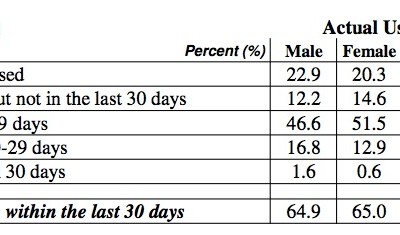
Balancing fun and finances is never easy, especially in college. During these memorable years, students should balance their education and social lives.
So, what exactly is the best way to ensure you’re setting yourself up for a healthy financial future during and after school?
For the most success in developing great spending habits and making intelligent financial decisions, be sure to use the following tips.
Budgeting
The best way to make an immediate impact on your spending habits is to create a budget that can accommodate your lifestyle. The best way to go about this is to weigh your “wants” and “needs” to see what you can and should be spending your money on.
Allowing yourself a set amount of money to spend each week is a great way to keep yourself on track. It’s important to keep in mind major purchases or events that are coming up, that way you can balance out your budgeting plan in order to save up.
When it comes down to it, being selective and decisive on when to save and when to spend will help guide your efficient budget planning process. Whether it be limiting the number of times you eat at restaurants or having a night in with friends instead of going out, there are many ways to save a few extra bucks which can really add up over time.
Credit
College is a great place for students to experiment with credit cards and spending, but it definitely has to come with great responsibility. Knowing where and when to use a credit card to make purchases will be important in order to make sure you’re not overusing credit and finding yourself in debt.
Being open with your parents about spending habits will help in this regard, and even looking into online banks and credit repairing options ahead of time can save you stress and make sure you’re using your card in the correct fashion before potential disaster strikes.
On the bright side, paying off your credit card in college can be a good look for your credit score after college. So if you’re able to work a credit card into your financial life, it may benefit you in the long run.
Student Loans
Everyone has to pay for college, whether it be now or later, so factoring this into the overall plan for your spending and money allocation will be crucial to maintaining good habits over time.
Of course, when budgeting, you’ll have to take into account whatever amount you have to pay monthly in bills. Fully understanding the details of your student loans will give you a better long term perspective of how much you will be spending. Your interest rates, the dollar amount of your monthly payment, and how long you will be paying are just some of the important items you should be thinking of. Talking to your parents about these things is ideal so they can help set you on a path that’s sustainable for both you and them.
For more advice on student loans check out our collection of articles, here.
Working In College
A great way to start building great spending habits is to work a job while in school. If your schedule allows it and if you’re able to balance it with schoolwork, working a part-time gig on campus can benefit you in many ways.
Having a job starts you off with an income in which you can balance your finances with, unlike having a set amount in an account that you’re constantly withdrawing from. It’s also a great way to meet new people and add diversity to your college experience. Since you’ll be working full-time after school anyway, having at least a little income from working in college will give you some experience with budgeting and handling incoming money.



